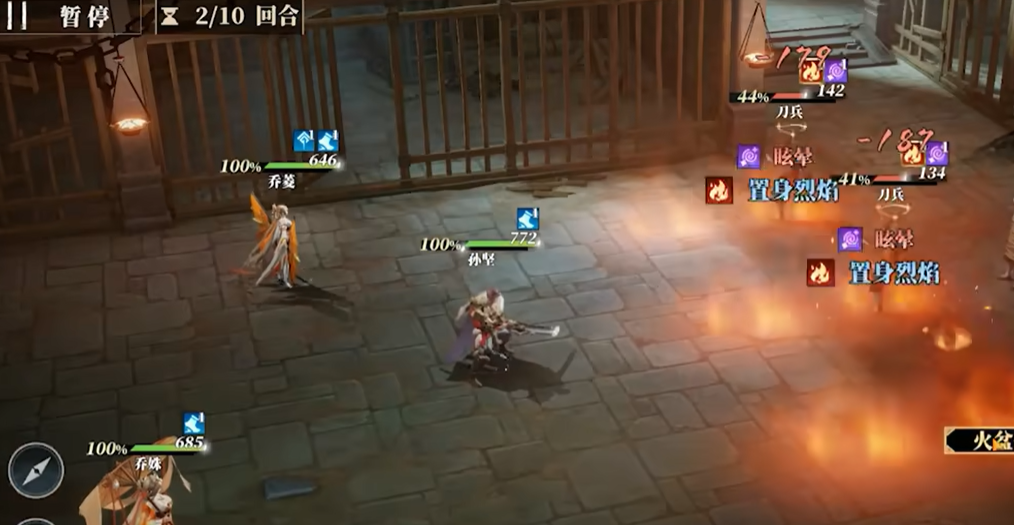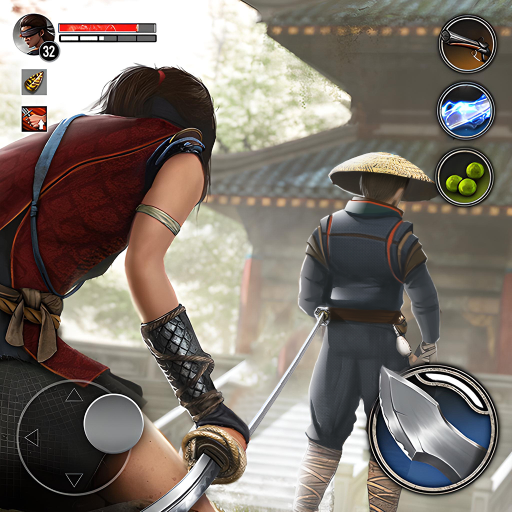
GWENT: The Witcher Card Game
Game Introduction
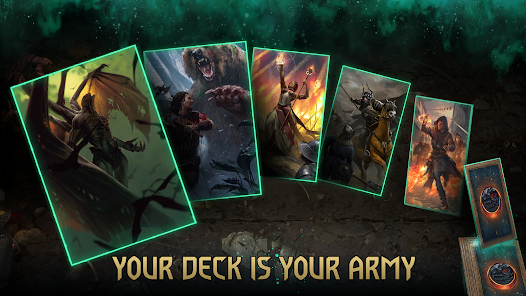
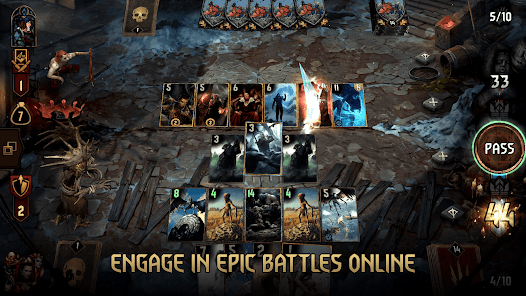
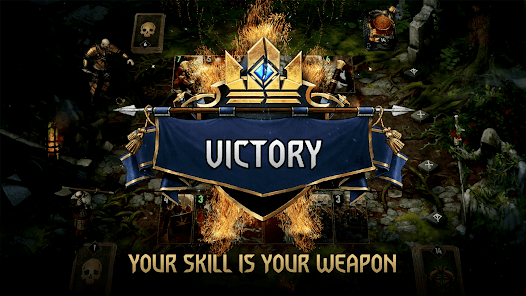
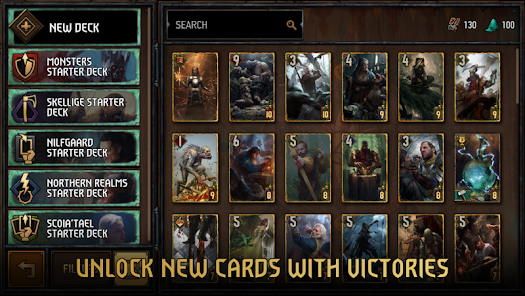
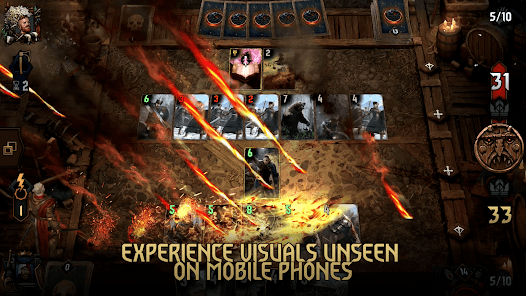
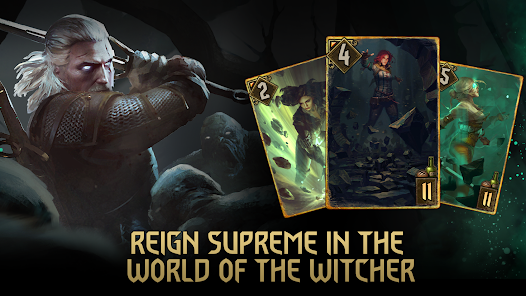
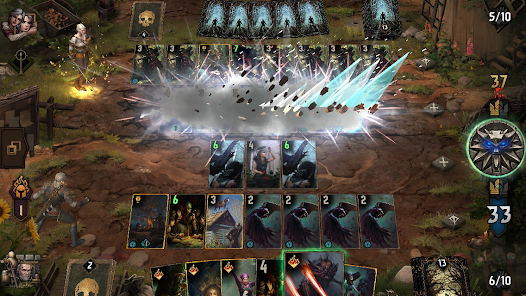
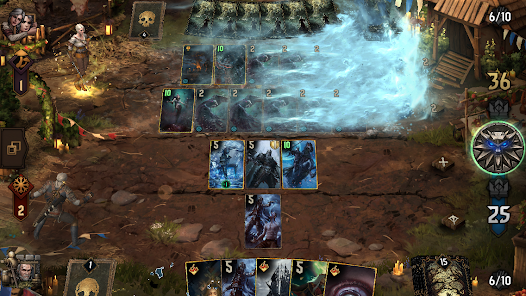
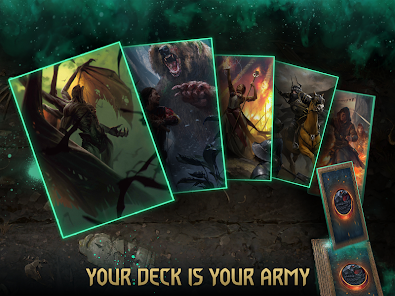
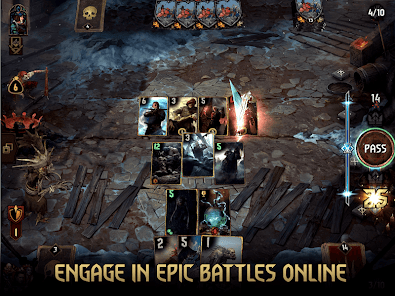

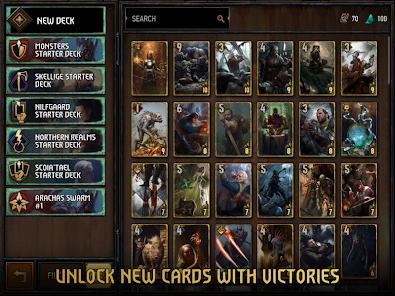
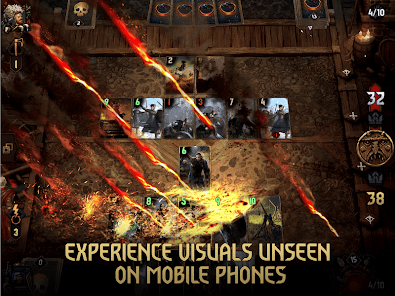
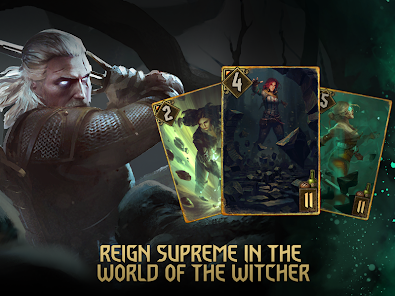


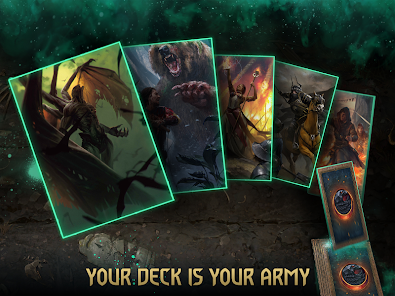
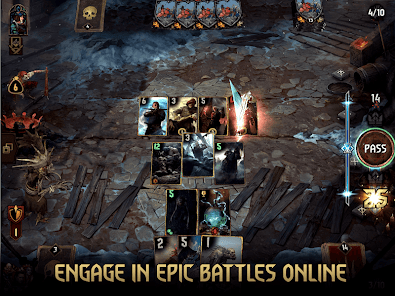

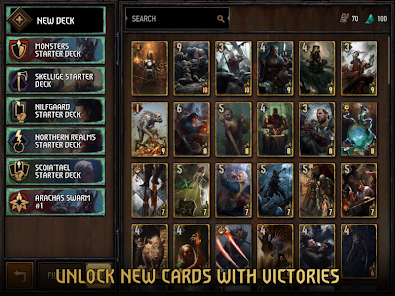
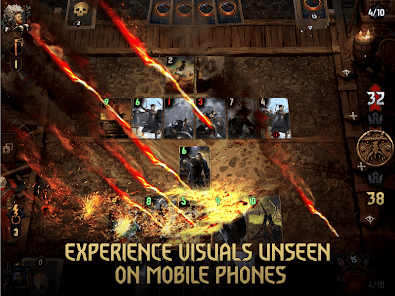
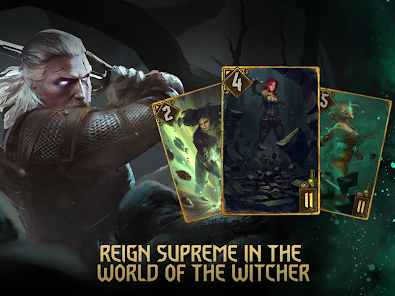
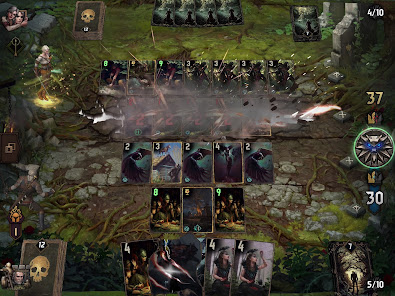
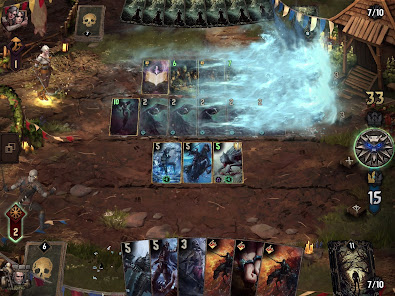


Hot Strategy
Code Name: Kill Li Si How is it? Analysis of the Card Strength for Code Name: Kill Li Si
Li Si can be considered a strategist of great renown and formidable reputation, and it is believed that everyone has a very deep and comprehensive understanding of this character. In the game Code Slaughter, the developers have ingeniously recreated this historical figure, and what Li Si is like in Code Slaughter is something you can learn about next. The editor will explain in detail how to play Li Si in Code Slaughter.
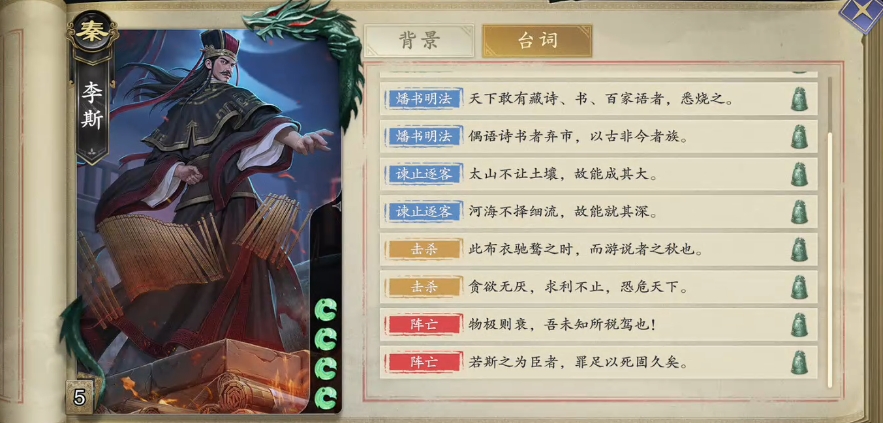
This general card for Li Si has a hand limit of 5 cards and 4 health points. Let's first talk about his skill, Burning Books and Clarifying Laws. After Li Si discards a card, from this moment until the start of his next turn, if another player plays a card with the same name as the one discarded by Li Si, then Li Si can choose to discard 1 card from that player. It should be particularly noted that if the discarded card deals damage to Li Si, Li Si can further play 1 Kill against that player.
For example, if Li Si discards a Dodge, and during another player's turn, that player plays a Dodge, at this point, Li Si can use the Burning Books and Clarifying Laws skill to discard that player's Dodge. If the discarded Dodge, according to the game rules, deals damage to Li Si, then Li Si can immediately play 1 Kill against the player who caused the damage, to counterattack or balance the situation. It is worth noting that the setting for cards with the same name is the same as Han Xin's Ambush on All Sides, meaning that Kills with different attributes are considered to have the same name, which also enriches the possibilities of using this skill in different situations.
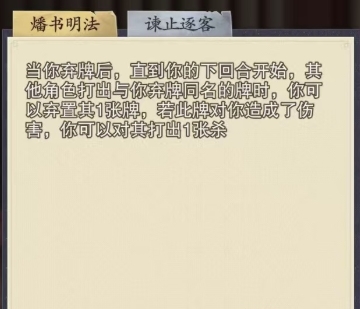
Looking at the skill Remonstrance Against Expelling Guests, when Li Si plays a certain card, from this moment until the start of his next turn, he can obtain cards with the same name as the ones he played, which were discarded by other players. Those originally discarded hand cards will return to his hand. For instance, if Li Si plays a Peach, and during another player's turn, if a player discards a Peach, then Li Si can use the Remonstrance Against Expelling Guests skill to retrieve that discarded Peach, thus increasing his hand resources.
From the perspective of the game mode, this general is clearly more suited for the Eight-Man Army mode. Unfortunately, after trying a few rounds in the Eight-Man Army mode, the editor found that most of the time, Li Si performs like a blank general, not showing the expected strength, and the control feel is also quite strange, giving a sense of having power but unable to exert it.
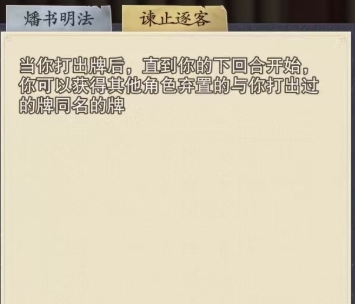
Therefore, everyone is eagerly hoping that the official will add an active skill for Li Si, or appropriately enhance the strength of his existing skills. However, from the overall skill design, Li Si's current skills in the game are somewhat overpowered, meaning that under certain specific circumstances, their effects may appear too strong, potentially affecting the game balance. Moreover, Li Si's position in the game is not fixed; whether as the Lord, Loyalist, Rebel, or Traitor, choosing Li Si is not a bad decision.
But the prerequisite is that you need to have a sufficiently deep understanding and proficient operational skills. If you do not fully understand his skills, there is a high likelihood of making mistakes during the game, directly discarding many hand cards, and falling into a passive situation. In actual combat, Li Si can have 5 hand cards, which is a significant advantage. Having the opportunity to have one or even more extra hand cards than other characters means having more choices and strategies to employ. Combined with his unique and overpowered skill effects, Li Si is definitely a key figure.
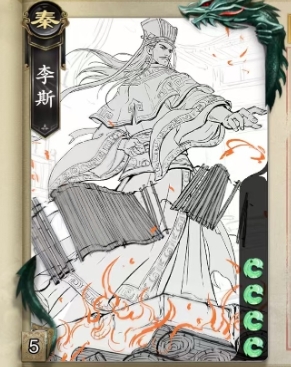
After reading the detailed introduction of Li Si in Code Slaughter provided by the editor, it is believed that everyone now understands how to play Li Si. Currently, obtaining Li Si is not easy. Players need to actively participate in the Punishment of Heaven activity, and through continuous effort, accumulate enough items, and finally, they can successfully exchange for him in the Punishment Store.
What are the new characters in Code Kill? Introduction to the new character cards in the Code Kill mobile game.
As a card game that can be played like a board game, the unique general system of Code: Kill has always been a highlight of the game. The game gathers many generals from different historical backgrounds, each with their own unique number of cards in hand, health points, and skill effects. People often ask about the new generals in Code: Kill because the general cards in this game are constantly being updated, typically on Thursdays.
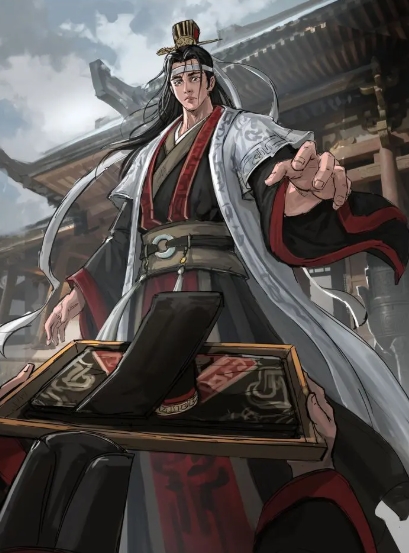
Recently, the game implemented two new generals, including Zi Ying, who was updated on April 10th. As an elite card of the Qin faction, Zi Ying has a unique set of skills. As the last king of Qin, his base number of cards in hand is 4, and his maximum health points are 5. What truly makes Zi Ying stand out are his two unique skills called Last King of Qin and Overthrow the Temple to Eliminate the Traitors. The Last King of Qin skill demonstrates Zi Ying's basic effect: at the start of the game, the number of cards in Zi Ying's hand will double, which not only gives him more options right from the beginning but also sets the stage for future gameplay.
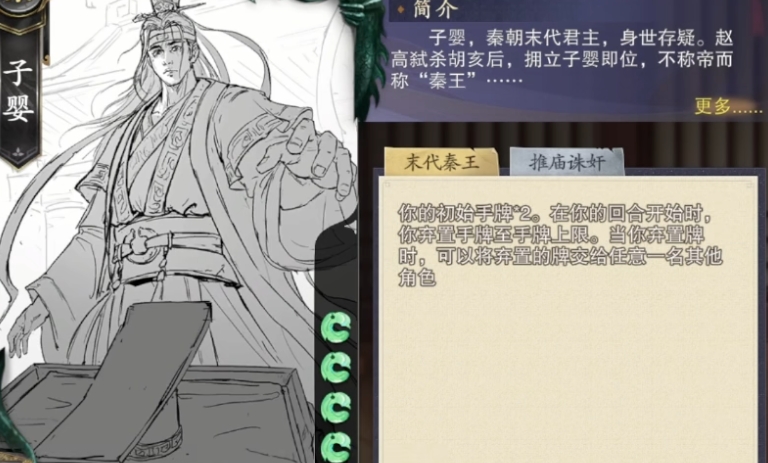
At the start of each turn, Zi Ying needs to discard cards down to his hand limit. Although this process may seem somewhat helpless, he can give the discarded cards to any other character, which is undoubtedly a form of support for teammates and a disruption to enemies. This flexible card handling ability makes Zi Ying an unpredictable variable in the game. The Overthrow the Temple to Eliminate the Traitors skill further elevates Zi Ying's tactical depth. Once per turn, Zi Ying can reduce his equipment limit by 1 point to draw 3 cards, and his hand limit will also increase by 1 point.
This strategy of sacrificing equipment limits for more cards in hand gives Zi Ying more room for maneuver and choices in the game. When Zi Ying's equipment limit first drops to 0, he can even discard all his "Kill" cards and deal equal damage to another character. In actual combat, Zi Ying's skill combination needs to be flexibly applied based on the current situation and the state of the opponents. He must maintain team balance through reasonable discarding and supporting teammates, maximize his hand card advantage and output capability by adjusting equipment limits, and also protect himself to avoid being targeted by enemies at critical moments.
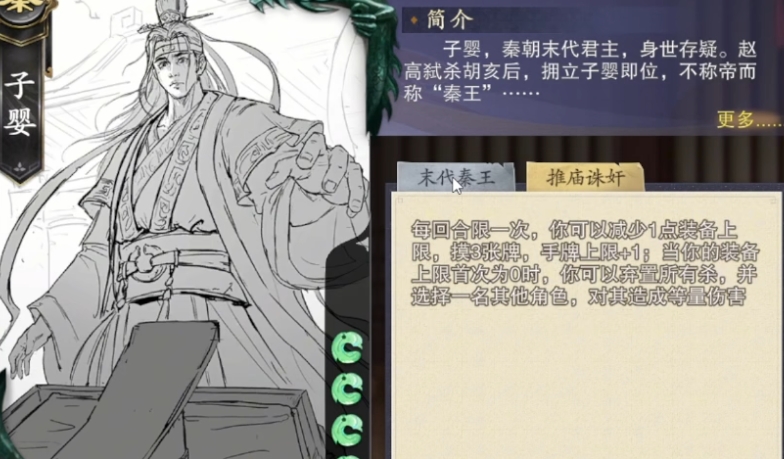
Following Zi Ying, the game welcomed another heavyweight new general named Ji Bu. As a general of the Western Chu faction, Ji Bu is a rising star in this faction, updated on April 17th, with a base of 3 cards in hand and 6 health points, bringing unprecedented influence. His A Promise Worth a Thousand Pieces of Gold skill showcases a unique chivalrous demeanor. The effect of this skill is that once per game, other characters can choose to give all their cards to Ji Bu, and Ji Bu has the right to refuse. But if he accepts, it means that in this game, he cannot deal any damage to that character and will become the target of "Kill" instead.
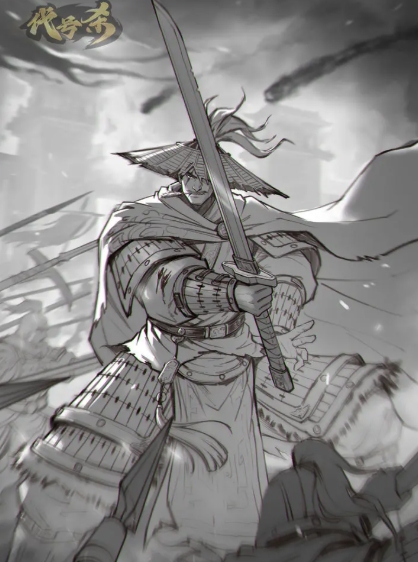
Another skill of Ji Bu is called For the Sake of Chivalry, which can be used once per turn. When a character takes damage, if their health points or number of cards in hand is the lowest on the field, Ji Bu can draw 1 card and then play 1 "Kill" against the source of the damage. This skill allows Ji Bu to quickly counterattack while defending. In actual combat, the A Promise Worth a Thousand Pieces of Gold skill makes Ji Bu a trusted protector of his teammates, able to take on the responsibility of protecting them at critical moments, while the For the Sake of Chivalry skill allows Ji Bu to effectively strike back at enemies while defending.
Do you now know what new generals are in Code: Kill? Since the game is still continuously being optimized, the effects of these general cards are also constantly changing. Some general cards have even changed multiple times, so the release of new generals is a bit slower. If you are interested in the new generals, you can check out these two general cards recently.
What are the skills of Zhen Mi in Code Name: Kill? Analysis of Zhen Mi's card strength in Code Name: Kill
In the battlefield of Code Kill, Zhen Mi's practical skills are mainly useful in multiplayer modes. She has become a popular support choice among many players due to these skills. The skills of Zhen Mi in Code Kill that everyone can familiarize themselves with from this introduction include her appearance as Lady Zhen. Although she only has 4 initial health points, the skills she possesses still highlight the characteristics of a support card.
The first skill, "Beauty of the State and City," can provide valuable health recovery for teammates. The core of this skill lies in the accumulation and release of water attribute cards. Specifically, whenever Zhen Mi accumulates 3 water attribute cards, whether it's dodging an enemy's attack or using a water attribute kill for a counterattack, she can trigger a powerful recovery effect, allowing up to 2 characters to each recover 1 health point. It's worth noting that this recovery effect is not limited to Zhen Mi herself; she can choose to benefit herself and another teammate simultaneously.
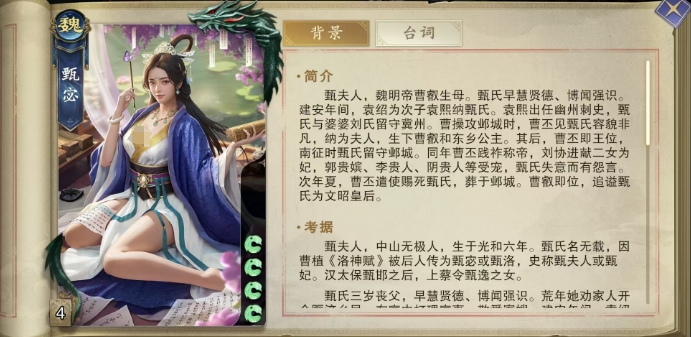
The accumulation method for this skill is extremely flexible, not limited to a specific phase or turn. This means that no matter if Zhen Mi is in position 1, 2, or any other, as long as she plays a water attribute card, these cards will be continuously accumulated by the system. For example, if Zhen Mi successfully plays 2 water attribute dodge cards during her turn in position 1, and then plays another water attribute dodge card during the turn of position 2, the "Beauty of the State and City" skill will be triggered, and two characters will receive health recovery. This flexible accumulation method allows Zhen Mi's support ability to be fully utilized in various stages of the game.
When Zhen Mi triggers the "Beauty of the State and City" skill, the recovery effect is settled before the effect of the played card. This means that if Zhen Mi plays a water attribute kill and reaches the cumulative count, she can first allow two characters to recover health, and then deal damage to the target according to the effect of the kill. This mechanism of healing first and then dealing damage is quite advantageous. However, it should be noted that this skill also has its weakness. When the skill is sealed, the number of water attribute cards previously accumulated by Zhen Mi will stop accumulating. Therefore, when using Zhen Mi, one must pay attention to this point.
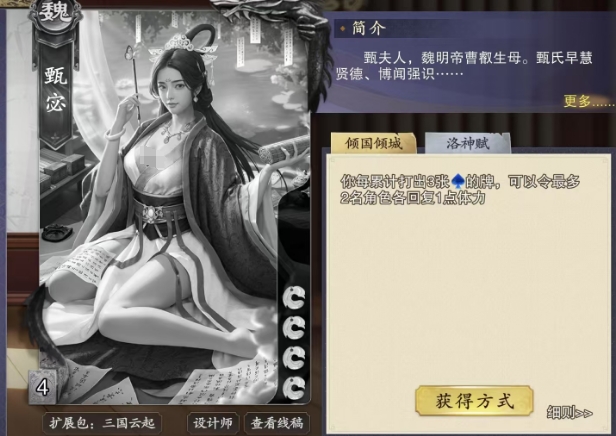
The second skill is "Ode to Luo Shen." This skill revolves around water attribute cards, providing Zhen Mi with powerful card-drawing and hand management capabilities. Whenever Zhen Mi obtains a water attribute card, she can draw an additional card. This immediate card-drawing ability allows Zhen Mi to accumulate cards faster in each game, whether they are equipment, defense, or attack cards, thus enhancing her overall combat effectiveness.
This extra card-drawing effect is not limited to the initial water attribute cards obtained by Zhen Mi. Even if she acquires water attribute cards through other means, such as being given by other characters or through skill effects, this effect can still be triggered, broadening Zhen Mi's card-drawing channels. Additionally, the "Ode to Luo Shen" skill gives Zhen Mi unlimited control over water attribute cards. In the regular rules of the game, the number of hand cards is often strictly limited, but Zhen Mi's water attribute cards do not count towards the hand card limit. This means that theoretically, she can retain an unlimited number of water attribute cards without worrying about hand card overflow.
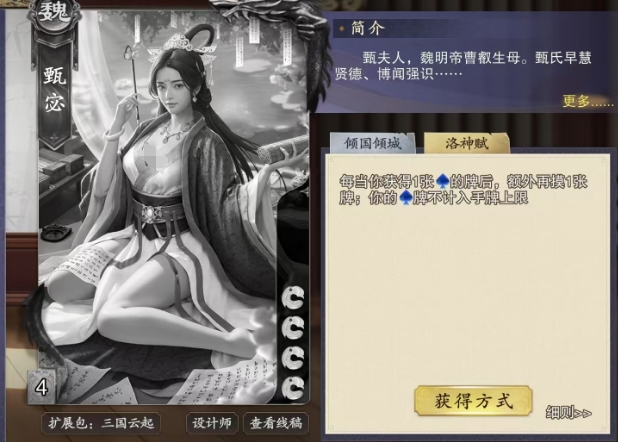
This characteristic allows Zhen Mi to build her hand card system more freely, whether it's an all-water attribute offensive deck or a defensive deck primarily composed of water attribute cards. If Zhen Mi obtains multiple water attribute cards at once, she only needs to draw one additional card, rather than drawing one for each. This design avoids the problem of having too many cards while ensuring that Zhen Mi can gain substantial benefits from each time she obtains a water attribute card.
If the extra card drawn is also a water attribute card, Zhen Mi can continue to trigger the card-drawing effect. This chain reaction-style card-drawing mechanism allows Zhen Mi to burst out with amazing card-drawing power at critical moments. Additionally, the "Ode to Luo Shen" skill ensures that water attribute cards cannot be discarded during the discard phase. Zhen Mi's water attribute cards will not be lost due to forced discarding during the discard phase, which also enhances her hand card retention capability.
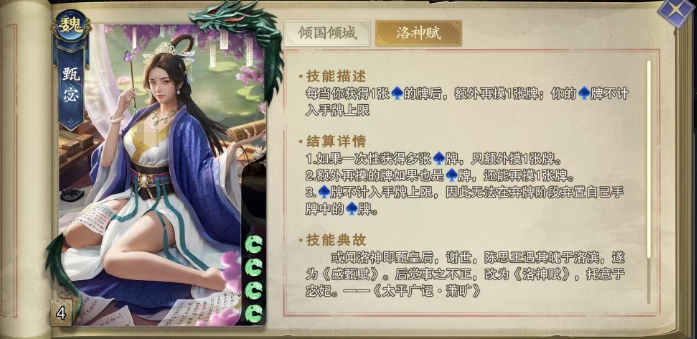
Now you know what skills Zhen Mi has in Code Kill, right? Her skills are quite prominent, providing stable health recovery for teammates and, to some extent, increasing her own survivability. Although her attributes are relatively single, it is precisely this focus on water attributes that allows her to play a greater role in specific lineups.
How Powerful is Yujie in Codename: Kill? An Analysis of Yujie's Card Strength
For those who want a card game that is easy to get into but also has deep and complex strategies, a gameplay style similar to Codename: Kill recently attracted a large number of players. Although the initial entry barrier for Codename: Kill's Yu Ji is not high, mastering this character's skills requires a significant amount of time and effort from players. The characteristic of being easy to learn but hard to master is a common point among many character cards in this game, with many techniques needing to be understood through actual play.
For beginners, facing a plethora of characters and intricate skills, it often feels overwhelming. Therefore, among the many characters, Yu Ji stands out due to her simple skill mechanism, which has garnered her a lot of fans. She possesses unique skills and an elegant image, winning the affection of many players. Yu Ji's health is relatively low, at only 4 points, but this does not diminish her influence on the battlefield. On the contrary, her first skill, Beauty, becomes an important asset for her to stand firm on the battlefield.
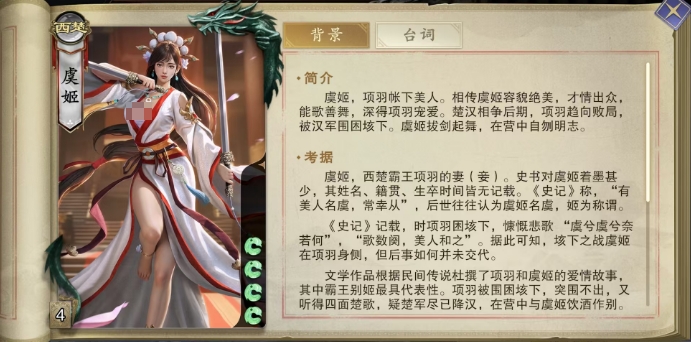
This skill activates when Yu Ji enters the battlefield, giving players a great deal of strategic choice. The player can designate a male character to take all damage on her behalf. This setting increases the game's strategy and interactivity. As long as another target is designated by this skill, when that target is attacked by an opponent, the health deduction will be transferred to Yu Ji, acting like a shield. Additionally, it provides 1 health point recovery for the designated character. This clever design tests the player's prediction ability and reflects the balance of character settings in the game.
Of course, there is a good way to counter this skill: if the opposing side does not use any male character cards, then the Beauty skill cannot be activated. However, because female character cards are generally not as strong as male character cards, few players use this method to counter the skill. This setting adds variability and uncertainty to the game, requiring players to make decisions more cautiously. Also, when Yu Ji is about to receive damage, if the designated male character (Overlord) has low health, the damage to Yu Ji will result in her losing health. This setting further increases the game's complexity.
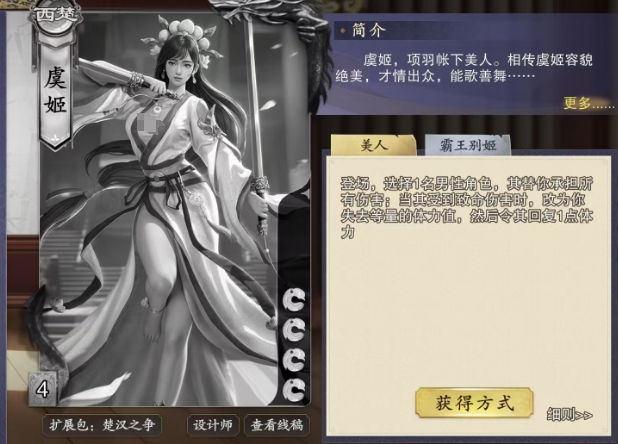
The second skill, Farewell My Concubine, is another powerful skill of Yu Ji. When Yu Ji unfortunately dies, she can activate this skill, causing a male character to immediately enter a new turn. This setting breaks the traditional order of turns in card games. Specifically, when Yu Ji dies and activates the Farewell My Concubine skill, all subsequent phases and settlements of the current turn are immediately terminated. This means that no matter what actions or effects have yet to be executed or settled in the current turn, they will stop due to Yu Ji's death. Then, the game will directly start the turn of the targeted character, as if that character had just completed their own turn.
For example, in the scenario of War Flames, if Yu Ji dies for some reason, she can activate the Farewell My Concubine skill, allowing Xiang Yu to immediately enter a new turn. In this case, the role that was supposed to respond to the War Flames no longer needs to do so, as their action sequence has been interrupted and rearranged. It should be noted that after the new turn starts, the action sequence will change directly, meaning that the originally orderly game may become chaotic due to Yu Ji's death.
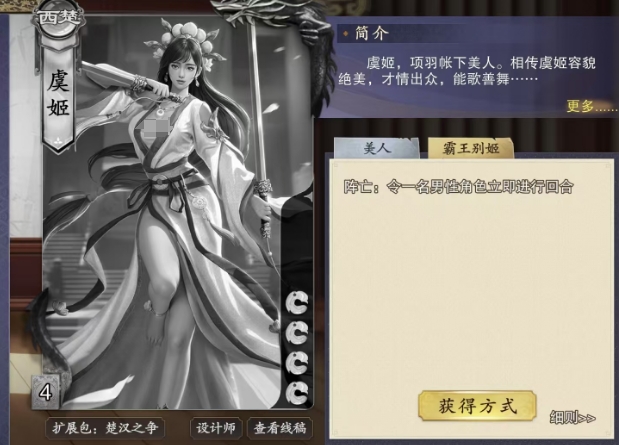
At this point, players need to readjust their strategies and plans to cope with this sudden situation. After the new turn ends, the game will not return to the original settlement order but will continue according to the new action sequence.
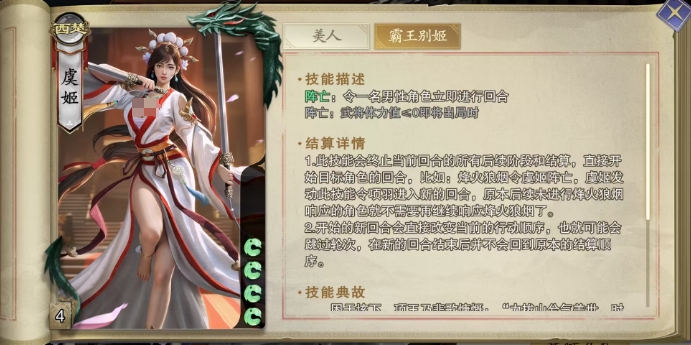
That's all for the introduction of how powerful Yu Ji is in Codename: Kill. In fact, the skill setup for Yu Ji is relatively simple. Generally, this character card is used in conjunction with other characters in multiplayer modes, where her abilities are more suitable for combat.
What is the effect of the Yuan Shao card in Code Name: Kill? Introduction to the Yuan Shao character card in Code Name: Kill
In Code Name: Kill, the strength of a general often directly determines the outcome of the game for players. To help players better understand and master the strengths of each general, I will gradually introduce the general cards that interest everyone. Today, you can clearly understand the effects of Yuan Shao's card in Code Name: Kill. Of course, with updates to the game version, balance adjustments, and the accumulation of player experience, the skills and playstyles of these generals may also change.
Among many generals, Yuan Shao's three skills work together to create extremely favorable conditions for elimination. Therefore, he is widely recognized as a top-tier general in terms of strength. His first skill, Four Generations of Three Ducal Titles, is particularly impressive. This skill grants him an initial +4 hand size and a +3 hand limit. The effect is very straightforward and powerful. At the beginning of the game, Yuan Shao can have more cards than other generals, which means he has more resources and opportunities to launch attacks, defend, or execute other card strategies. Meanwhile, the increase in hand limit ensures that he can maintain his hand size better, avoiding being at a disadvantage due to insufficient cards.
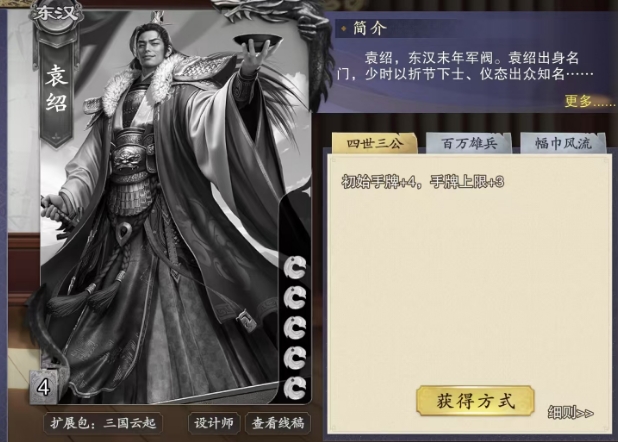
The second skill, Million Mighty Soldiers, is another powerful ability of Yuan Shao. This skill is activated at the beginning of the card-playing phase. As long as Yuan Shao has the most cards on the field, he can convert tactic cards in his hand into a "Barrage of Arrows." It's important to note that the condition for activating this skill is not strict; as long as Yuan Shao has one of the highest number of cards, whether it's because he originally had more cards or increased his hand limit through some means, such as equipment cards, he can use this skill. This design allows Yuan Shao to be more flexible in using his card resources in the game.
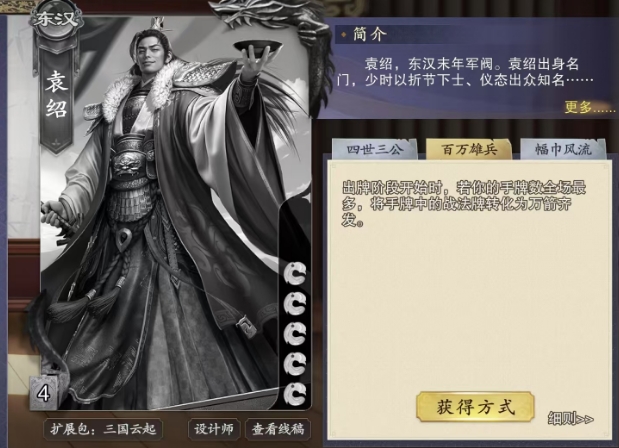
In addition to Million Mighty Soldiers, Yuan Shao's third skill, Elegance of the Turban, is also noteworthy. Every time he plays 3 equipment cards, his hand limit increases by 1, and this effect lasts until the end of the game. This means that as the game progresses, Yuan Shao's hand limit will continue to rise, allowing him to hold more and more cards. This not only increases Yuan Shao's resource pool but also makes him better able to handle various challenges and difficulties in the later stages of the game.
Yuan Shao indeed performs well in Code Name: Kill. He starts with 5 health points, providing him with a certain level of survivability on the battlefield. Except for a few special-ability generals, Yuan Shao's hand size is almost always among the highest. As long as he has tactic cards and the most cards on the field, he can convert these tactic cards into the powerful "Barrage of Arrows," which not only deals heavy damage to enemies but also quickly depletes the number of cards on the field, creating favorable conditions for subsequent attacks.
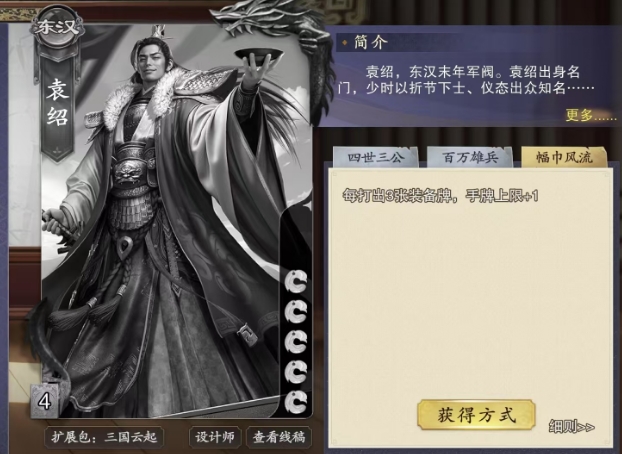
When all characters are forced to respond to the "Barrage of Arrows," their hand sizes are significantly reduced, making it easier for Yuan Shao to deal damage with "Kill" in the following rounds. It's worth noting that Yuan Shao does not have a clear faction bias; his skills work against all characters, making him especially outstanding in the rebel faction. As a rebel, Yuan Shao can fully utilize his skills to deplete the "Dodge" cards held by the lord and loyalists. If the situation is unclear, Yuan Shao can also choose to stockpile high-quality cards and wait for the best opportunity to act. He can take advantage of the increased hand limit to keep some key "Peaches" or "Wines" for critical moments, to save his teammates.
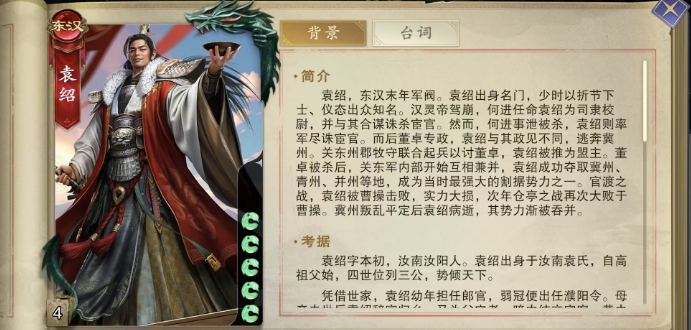
Now, you know how effective Yuan Shao's card is in Code Name: Kill. In summary, Yuan Shao is a general suitable for every player. His skills are simple and easy to understand, requiring little thought and preparation to unleash powerful combat effectiveness. Whether you're a newcomer or an experienced player, you can easily get started with Yuan Shao and enjoy the fun of the game.
What are the card skills of Sun Quan in Code Name: Kill? Introduction to Sun Quan's cards in the Code Name: Kill mobile game.
In the selection of various general cards in Code Name: Kill, the design concept of Sun Quan cleverly draws on the classic image from Three Kingdoms Kill, yet significantly enhances and innovates upon it. To know what the skills of the Sun Quan card in Code Name: Kill are, you need to look at the latest updates, as the game's cards have undergone multiple innovations, and there have been some numerical adjustments later on. Therefore, the current strength depends on how well the development team has balanced it.
Sun Quan's core skill can be said to have received unprecedented reinforcement in Code Name: Kill. Based on the currently provided skill values, it is almost guaranteed to trigger 100% in each of his turns, and more astonishingly, it can almost trigger once in every character's turn, bringing continuous and stable benefits to Sun Quan. In fact, this is equivalent to adding several additional opportunities to play cards on top of the already powerful card-drawing ability, a design that could be seen as an adjustment made by the developers after considering the title "Tyrant of Jiangdong," with his skill also controlling the pace of battle.
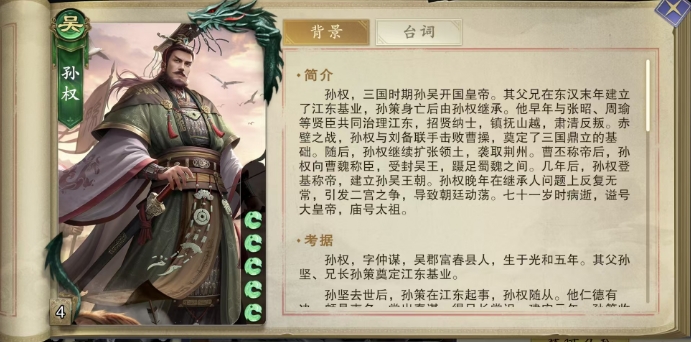
As a historical figure, Sun Quan in Code Name: Kill possesses 5 health points and a skill named "Horseback Tiger Shooting." This skill can only be used once per round, but its effect is extremely powerful. When other characters draw 4 or more cards during their turn, Sun Quan can immediately draw 1 card and choose to play 1 kill, which does not consume his kill count, but needs to meet the attack range condition. This attack range is not particularly small by current standards.
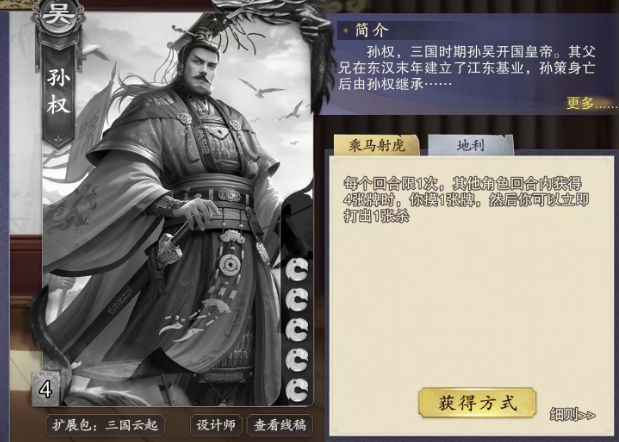
Additionally, there is a "Geographical Advantage" skill. The core effect of this skill is to bestow all characters with the powerful ability of "Balance." The effect of Balance can be seen as an extra benefit brought by the Geographical Advantage skill, extending the strategy for hand and equipment management to an unprecedented level for each character. The limit of once per round ensures the balance of the skill while providing players with ample strategic space. Players can flexibly choose to discard hand cards or equipment and then draw an equal number of cards, thus quickly adjusting their hand structure.
This mechanism of immediate feedback is also one way to use the Geographical Advantage skill. Another highlight of this skill lies in its continuously effective nature. Once activated, it will cover the entire battlefield, ensuring that all characters can continuously enjoy the convenience brought by Balance. However, such powerful force comes at a cost; when the skill is banned or removed from the game for any reason, the Balance ability of all characters on the field will also become ineffective. This undoubtedly has a greater impact on the game, requiring players to quickly adjust their cards after losing this advantage.
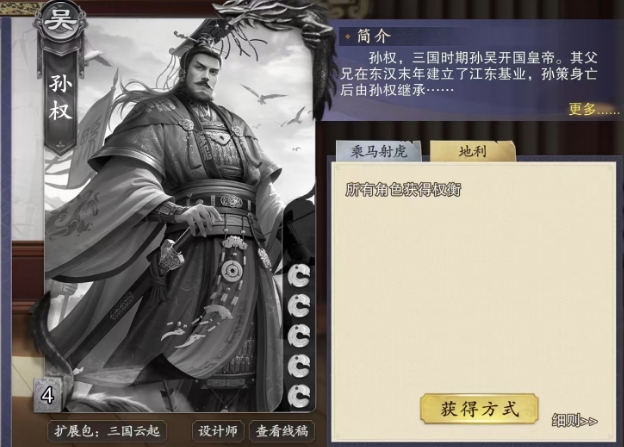
The Geographical Advantage skill also conceals an additional strategy that everyone can use. That is, whenever a character accumulates 4 drawn cards, the Geographical Advantage skill triggers a special effect, allowing the character to first execute a playing phase. During this process, the player can first draw a card and then choose to play a kill. This design also provides players with more offensive opportunities. Therefore, the Sun Quan card actually offers many chances to launch attacks, depending on how players adjust the effects of these skills.
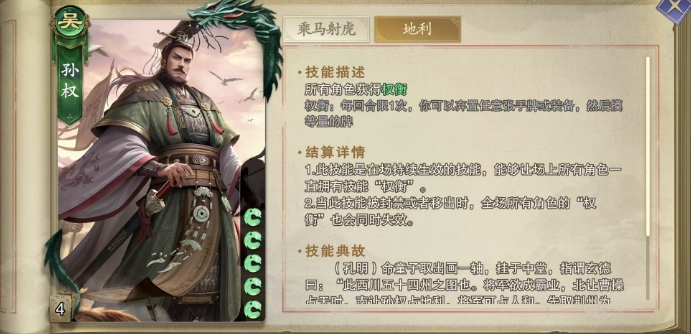
That's all for explaining the skills of the Sun Quan card in Code Name: Kill. Actually, most of the card's abilities currently rely on the second skill. Of course, if you want to use Sun Quan effectively in the game, you also need to master the card-drawing opportunity from the first skill. The current balancing mechanism of this card is quite good, and many players who have used it before also recommend it. Everyone has the chance to try it out.
How to Choose Generals in Code Kill How to Select General Cards in the Code Kill Mobile Game
On the battlefield of Code Kill, the strength of generals has always been a core topic that players enjoy discussing. After all, in addition to depending on the player's own strategic layout, the card skills carried by the general can often play a decisive role in the outcome of a match. So, do you know how to choose generals in Code Kill? Today, I will bring you some selection tips, providing detailed references for everyone to see if there are any they would like to use.
Firstly, let's talk about Guo Jia. His Ten Victories and Ten Defeats skill allows him to draw 2 additional cards whenever he takes damage during battle, enhancing his hand card reserve and response capability. Not only that, but he can also give any one of his hand cards to another character, increasing the number of times that character can play a kill in their next turn. Another of Guo Jia's skills, Heavenly Jealousy, is equally formidable. At the beginning of each turn, he performs a divination. If the result is not a club, he takes 1 point of damage; if it is a club, he gets the divination card, which adds uncertainty to his hand. More crucially, upon his death, Guo Jia can activate a special skill, allowing him to choose another character to deal 1 point of damage to all enemies within a distance of 1.
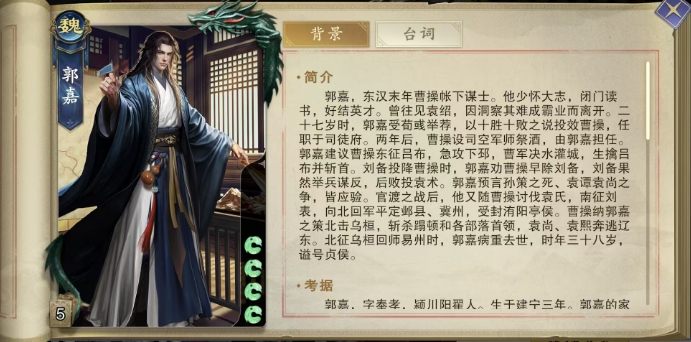
Next up is Xun Yu, whose Two Tigers skill is also very powerful. In battle, Xun Yu can have a teammate play a kill against an enemy. Once damage is dealt, he can randomly obtain one of the opponent's cards, and this process can continue until one side stops playing kills. This skill not only enhances the output of teammates but also weakens the enemy by acquiring their hand cards. Additionally, Xun Yu's Lingering Fragrance skill provides him with more survival assurance on the battlefield. He can make a character draw 2 cards and increase that character's hand limit by 1, making Xun Yu more flexible in managing hand cards. Lastly, Xun Yu's Drive Tiger to Swallow Wolf skill allows two characters to engage in a confrontation. Then, he can select another character to play a kill against the injured enemy from the confrontation, until the target is severely wounded. This skill requires a high level of strategic vision and judgment to be used to its fullest potential.
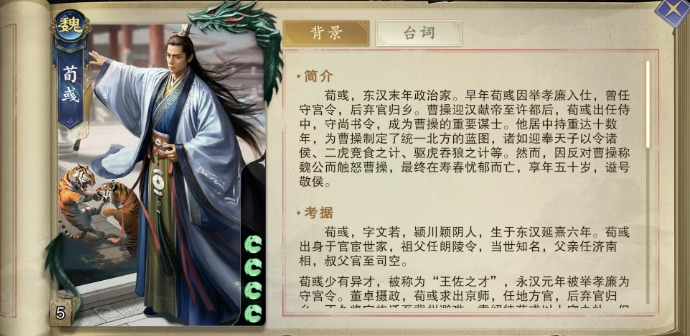
The name of Guan Yu should be familiar to everyone. His Thousand Armies Skill is truly exceptional, not only extending the range of kill attacks infinitely but also adding 1 point of damage for every kill card the target holds, making his attacks even more terrifying against enemies. The Martial Saint skill grants him extraordinary adaptability, allowing him to convert any hand card into a kill. Moreover, his Flood Seven Armies move, by discarding a blue club card, can force another character to discard all their hand cards and equipment, and take 1 point of damage.
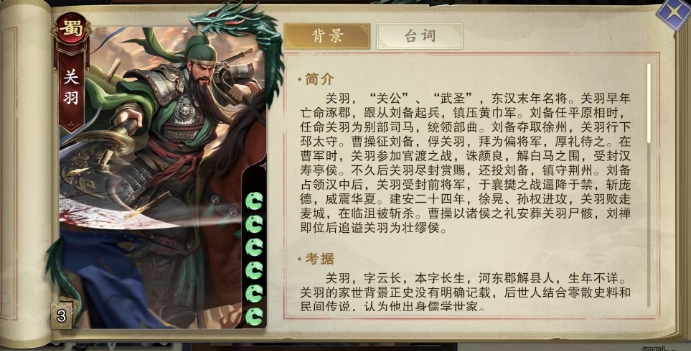
Zhuge Liang, too, possesses awe-inspiring skills. His Qimen Dunjia at the start of each turn, reveals the top card of the deck for each character, then he can freely choose a character to apply the corresponding Qimen effect. Finally, he returns the remaining revealed cards to the deck in their original order. Additionally, his Ingenious Strategy is his winning trump, randomly adding a special tactic card to his hand at the start of the turn. This mysterious card often plays an unexpected role at critical moments.
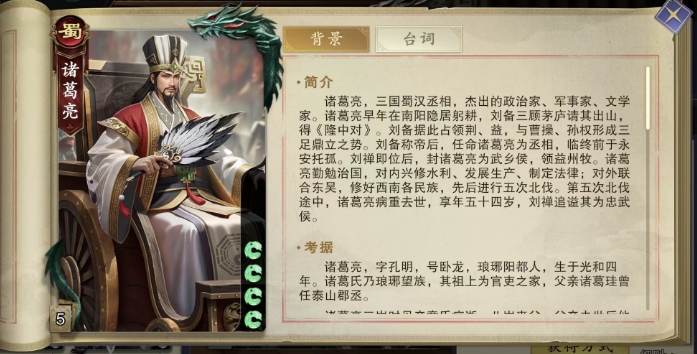
Liu Bang, the Han Dynasty ruler, is also a popular choice among many players. His Slaying the Serpent Uprising allows him to choose a non-kill hand card and destroy all identical cards in the current game, often weakening the opponent's power at a critical moment and creating an advantage for himself. Following this, after discarding cards in this round, he can make another character draw 2 cards, which not only strengthens the teammate's hand card reserves but also disrupts the opponent's rhythm to some extent. Furthermore, his Ultimate Skill, Great Wind Song, limited to once per turn, allows him to discard and reshuffle the deck immediately when he obtains a card with a value of 5, while randomly discarding one card from other characters. Finally, he can make a character continuously draw cards until reaching their hand limit.
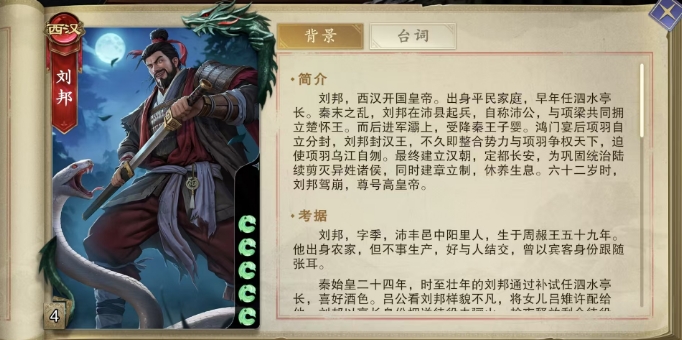
This concludes the introduction on how to choose generals in Code Kill. If you enjoy using different generals in various modes, the generals introduced in this article are currently highly recommended in terms of strength. You can try combining them with other cards for use in the game.
How to Play with Zhang Liao in Code Name: Killer Introduction to Zhang Liao's Card Gameplay in the Code Name: Killer Mobile Game
Zhang Liao's image varies in many Three Kingdoms games, but what they all have in common is his portrayal as a brave and skilled warrior. This makes him one of the historical famous generals. In the card game Code: Kill, Zhang Liao is a new creation. The charm of Zhang Liao in Code: Kill is significant, but this has little to do with his practical combat value. Currently, his skills also depend on the environment.
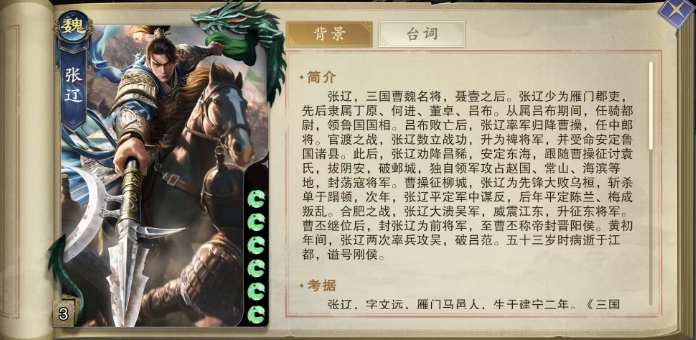
In Code: Kill, Zhang Liao is depicted as a general card with 6 health points initially and two unique skills. His appearance is quite similar to his historical prototype. His first skill, Freedom to Stop Crying, allows Zhang Liao to cleverly take one hand card from another character at the beginning of each turn, while preventing that character from using the crucial Invincible card during this turn. It should be emphasized that when Zhang Liao uses the Freedom to Stop Crying skill, the character whose card is taken does not completely lose the Invincible card; instead, it cannot be directly selected and used during Zhang Liao's turn.
However, this does not mean it becomes useless. On the contrary, players can convert it into other types of cards to play. This ingenious design retains the usability of the card and adds to the subsequent card-playing strategies in the game. Since Invincible is often used to remove key control effects or trick cards, if the opponent cannot use it in time, it means Zhang Liao can more effectively maintain control over the situation or put greater pressure on the enemy. Additionally, this skill has some selectivity; Zhang Liao can only take cards from characters who have hand cards, which requires players to choose the most suitable target for the attack.
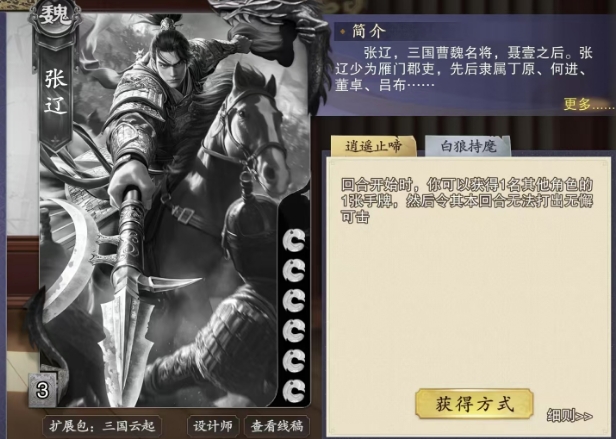
Zhang Liao's second skill is called White Wolf Holding Banner, and its effect is quite unique. At the beginning of each turn, Zhang Liao gains the ability to mark one character. This mark is not just a simple decoration but carries deep strategic significance. Once a character is marked by Zhang Liao, any character who attacks the marked character with a kill will receive an additional hand card as a reward. The key here is that the character who draws the card is the one who plays the kill, not the one who receives the kill.
If Zhang Liao marks a key enemy character, then the enemy player, when attacking this marked character, must not only consider how to effectively hit the target but also weigh whether they are willing to expose more tactical intentions due to the extra hand card. However, it should be noted that if Zhang Liao dies after marking a character, the mark from White Wolf Holding Banner will disappear, and its effect will no longer continue. This setting requires players to ensure their own safety first when using Zhang Liao.
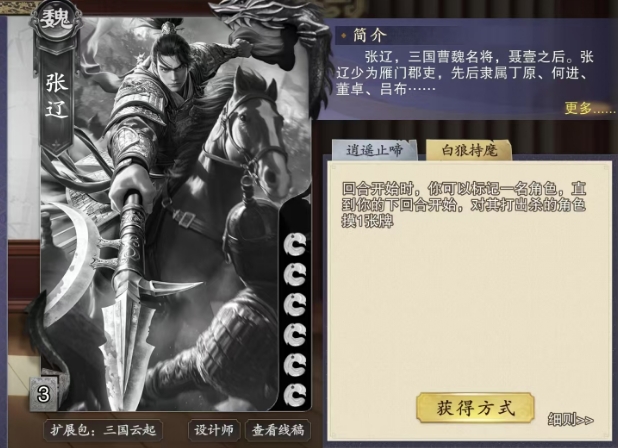
Another easily overlooked detail is that when the marked character is attacked with a kill, the action of drawing a card occurs before triggering other related skills, such as the consecutive kill effect of Zhuge Liang's Crossbow. This means that even if the attacker has only one kill, with Zhuge Liang's Crossbow equipped, they might still be able to continue the consecutive kills by drawing an extra hand card through White Wolf Holding Banner. Of course, when using White Wolf Holding Banner, players need to be careful not to mistakenly mark their teammates, as the effect of the mark is aimed at the attacker of the marked character, not the marked character itself. Therefore, before marking, players need to ensure that their choice aligns with the team's needs.
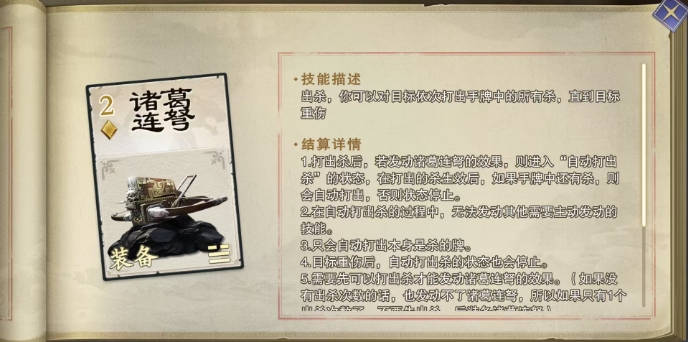
This concludes the introduction on how to play Zhang Liao in Code: Kill. Zhang Liao's skills are actually quite suitable for use as a main general, but it is recommended that this card be played by experienced players alone. There are many situations where his skill mechanics can be utilized, making it a relatively complex card.
Is the code name to eliminate Fan Zeng useful? Introduction to the strength of Fan Zeng's card in the Code Name mobile game
Fan Zeng can be said to be often overlooked in the Three Kingdoms, but in the game Code: Kill, Fan Zeng's image is vividly portrayed. The game cleverly shapes him into a card with powerful skills. Is Fan Zeng good in Code: Kill? In terms of gameplay, it is quite unique. To master the role of Fan Zeng, especially his skill effects and details to pay attention to during settlement, there are quite a few things to consider.
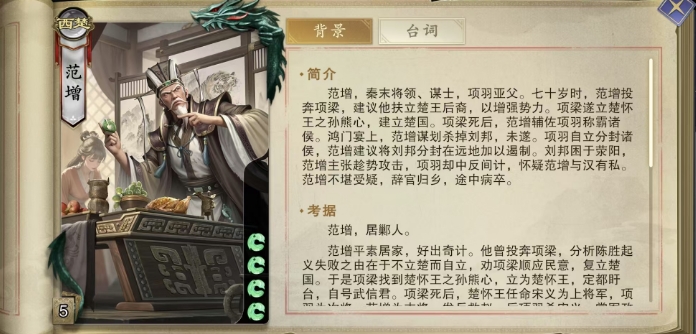
Fan Zeng is a fierce general in the Western Chu faction, with an initial health point set at 4. He possesses two core skills: "The Fall of Qin Must Be by Chu" and "Hongmen Banquet." Let's start with the "The Fall of Qin Must Be by Chu" skill. Its effect can be activated at the beginning of the game, allowing the player to choose any other character on the field and directly increase their health limit by 2 points and hand card limit by 2 cards. The timing for activating this skill is very particular, and it is generally recommended to use it early in the game to provide an advantage to teammates. After the chosen character first deals damage in each of their turns, Fan Zeng can immediately obtain a tactic card and has the option to play it right away.
This skill is not only Fan Zeng's signature, but also a highly strategic move in the game. It is easy to see that it has a strong directional nature. Therefore, it is strongly suggested that players choose Fan Zeng as their warrior card only when there are clear faction rules. Once Fan Zeng is selected, in multiplayer modes, according to the skills, one can only fully support teammates in battle. In team battles, Fan Zeng's support capabilities will be maximized, allowing him to use his skills to create advantages for his teammates.
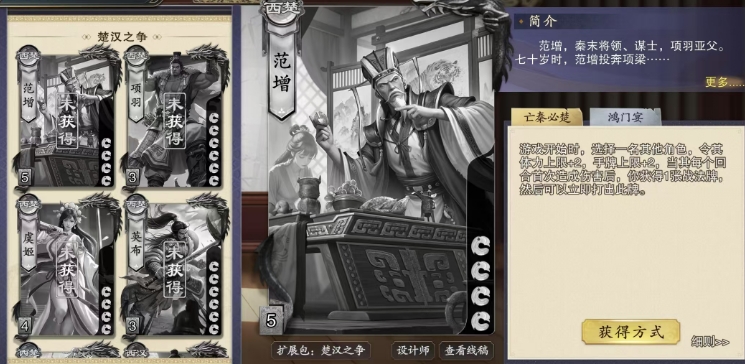
The second skill, "Hongmen Banquet," allows players to select another character to become the main character of this feast. Then, a number of cards equal to the current number of surviving characters are revealed. Starting from Fan Zeng, each character takes turns choosing and obtaining a card. This is just the beginning because Fan Zeng can then immediately play a card identical to the one obtained by the character, targeting them. This is a limited skill that can only be used once per game, so it must be used with great caution. Whether used to disrupt the opponent's hand layout or to create offensive opportunities for teammates, this skill can have a significant impact.
However, the resolution process of "Hongmen Banquet" is full of variables. If the chosen cards are beneficial ones like equipment, peach, or wine, what was originally aimed at oneself might cleverly turn into focusing on the target of "Hongmen Banquet." This not only means that you can use this skill to help teammates recover health or equip weapons, but also to disrupt the opponent's strategic layout at critical moments. When multi-target tactic cards, such as "Arrows Everywhere," are chosen, the targets remain multiple, and the resolution order starts from the next position after the character who played the card.
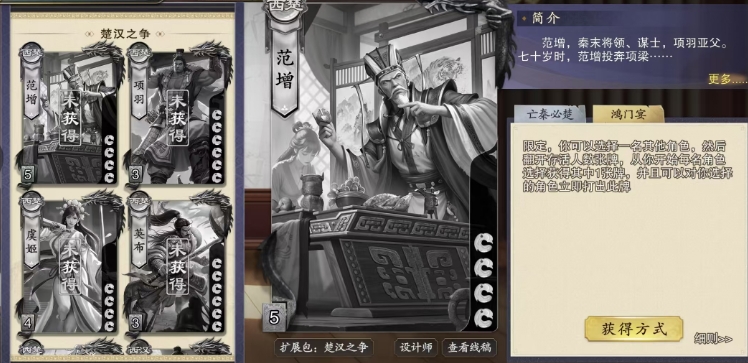
This means that you can cleverly use the sequence of cards and the positions of the characters to maximize the effect of the card. If no weapon card is equipped, selecting "Borrowed Knife" will not allow for an attack. This requires players to think thoroughly before initiating "Hongmen Banquet," ensuring every step aligns with their tactical layout. Additionally, various unexpected situations may arise during the resolution process. For example, if the target character of "Hongmen Banquet" unfortunately dies during the resolution, the remaining unselected cards will be discarded, and the selection process will stop. If any other character besides the target of "Hongmen Banquet" dies, their selection phase will be skipped. Even if the character who initiated "Hongmen Banquet" dies during the resolution, the process of "Hongmen Banquet" will continue.
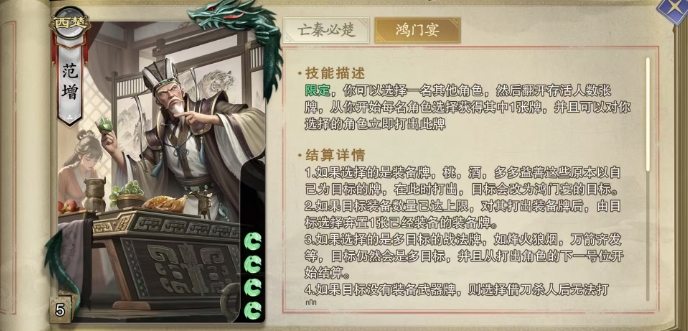
Is Fan Zeng good in Code: Kill? Based on the effects, it is relatively complex. From the above content, it can be seen that Fan Zeng has many unpredictable variables in terms of skills. However, from the perspective of skill effects, whether it is its strong directionality or flexible application methods, Fan Zeng becomes a card very suitable for everyone to use in entertainment modes.
How to Use Zhao Yun in Code Name: Kill Introduction to Zhao Yun Card Strength in the Code Name: Kill Mobile Game
Zhao Yun, the general whom players first meet in Codename: Kill, has skill designs related to his character's story. He is also the preferred choice for many new players to explore the fun of the game. There is a considerable space for everyone to try out how to use Zhao Yun in Codename: Kill. The actual effects of his skills contain clever ideas that can influence the battle, but because the randomness of cards in the game is very high, using this card depends on both luck and strategy.
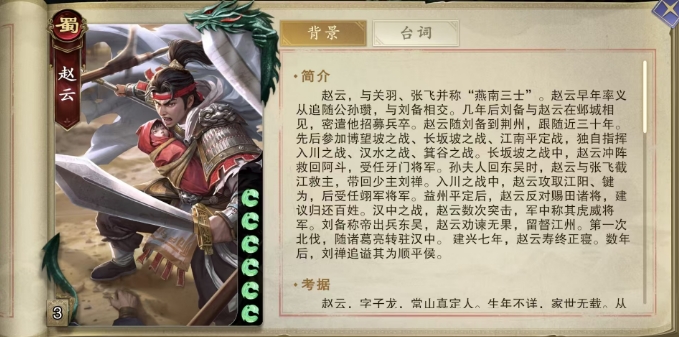
With an initial health set at 6, he not only possesses resilient survivability but also the core skill Dragon-like Spear Thrust. This skill gives Zhao Yun a unique combat mechanism; whenever he swings his long spear and strikes the enemy with a kill, he can draw an extra card. More interestingly, Zhao Yun’s dodge in this game can be used as a kill due to the effect of the skill. However, it should be noted that although Dragon-like Spear Thrust makes Zhao Yun more flexible when playing kills, its combination with certain equipment like Zhuge Crossbow is not as simple as imagined.
Because the Zhuge Crossbow allows Zhao Yun to play all the kills in his hand at once, the key here is that even with the bonus from Dragon-like Spear Thrust, the dodges in his hand will not automatically be considered as kills and played out due to the Zhuge Crossbow's effect. This design detail reflects the game designer's consideration for balance and requires players to plan each move more carefully while enjoying the thrill of combat with Zhao Yun, especially when building hand combinations and dealing with complex battle situations. Therefore, this is a card that is easy to pick up and quite powerful.
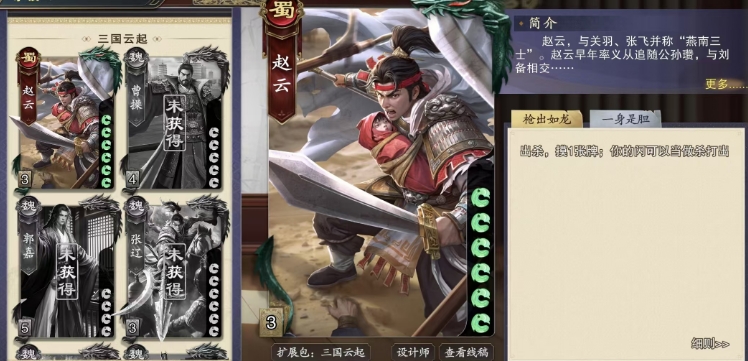
Zhao Yun, as a beginner-friendly general, indeed provides players with a good starting experience thanks to his stable initial attributes. In addition, he has another skill called Fearless, which grants Zhao Yun more flexibility. Whenever he needs to dodge an attack, Zhao Yun can not only successfully avoid it but also immediately counter with a kill. This back-and-forth interaction offers a high level of aggression. More ingeniously, the kills in Zhao Yun's hand can also be used as dodges, so this skill can also be utilized for counterattacks.
When this skill takes effect, it is worth noting that the kills played through the Fearless skill do not count towards the normal attack limit, providing Zhao Yun with more offensive options. However, this also requires players, while enjoying the convenience brought by the skill, to consider the limitations of the attack range, ensuring that every strike is precise. For this reason, the kills and dodges in Zhao Yun's hand become exceptionally valuable. Although there are more opportunities, they also come with more restrictions. Nevertheless, based on the current skill settings, this is still a very strong card, and many fragile generals cannot withstand Zhao Yun's such skill-based attacks.
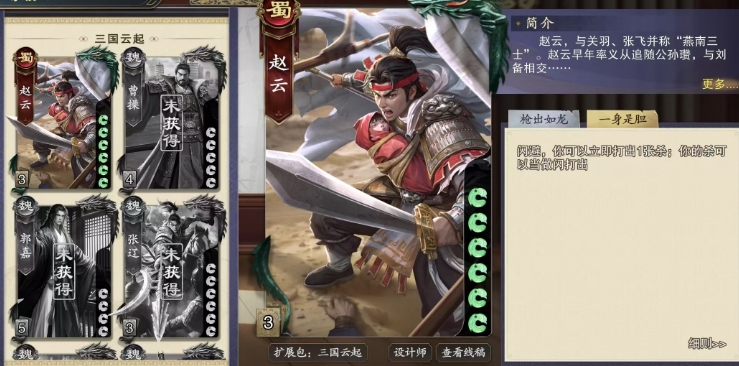
When using the Zhao Yun card, it is important to note that for players who seek to deal quick damage, pairing it with the Zhuge Crossbow equipment card is the best match. Although it does not automatically trigger Zhao Yun's skills, the consecutive attacks under manual operation can make this card burst out with astonishing combat power in an instant. This is particularly crucial in real battles and is a detail often overlooked by many new players. Only by mastering the techniques of manual operation can one ensure that Zhao Yun, when equipped with the Zhuge Crossbow, can deliver the highest damage output.
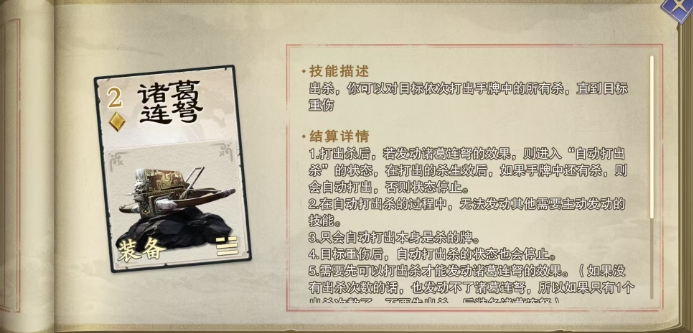
Now you know how to use Zhao Yun in Codename: Kill, right? Overall, the core of playing the Zhao Yun card lies in the flexible use of the combination of kills and dodges. As long as you master this technique, whether it's for novice missions or early battles, even if the modes and identities differ, choosing Zhao Yun can always bring out his unique advantages. For this reason, everyone should give Zhao Yun a try when they have the chance.
Recommend
Strategy
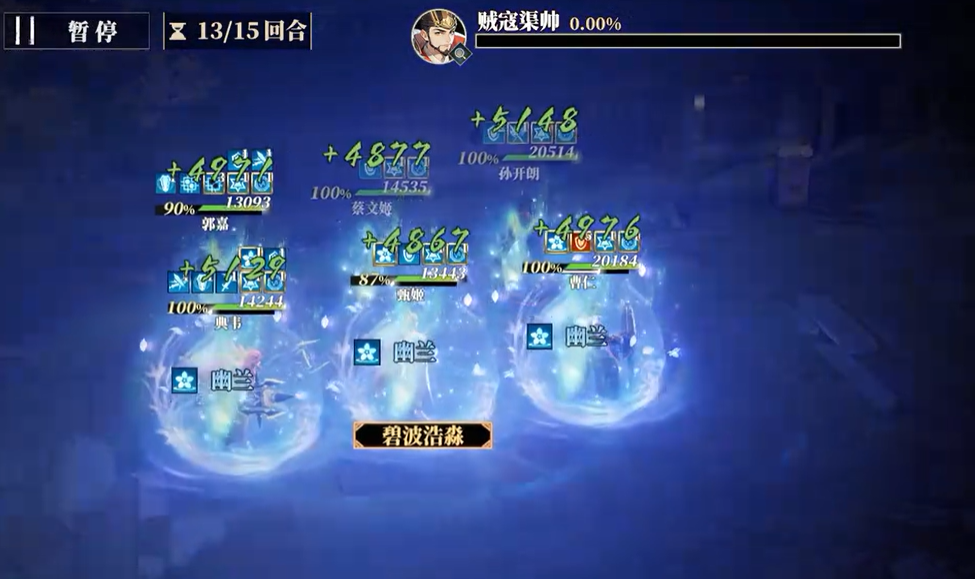
How to Play the Vigilante Hero in Romance of the Three Kingdoms Fantasy Continent 2: Ballad of the Warlord - Strategy Guide for Playing the Vigilante Hero in Three Fantasies 2: Ballad of the Warlord
What is the action order for "The Ballad of the Warhawk" in Fantasy Three Kingdoms 2? A strategy guide for the action order in The Ballad of the Warhawk in Fantasy Three Kingdoms 2
How is Viola in Black Beacon? Analysis of Viola's Strength in Black Beacon
When will the mobile game "Douluo Continent Soul Hunting World" be released? Introduction to the public testing time of "Douluo Continent Soul Hunting World" mobile game.
When will Dragon Stone War be released? Overview of Dragon Stone War public testing time
How to Play Modern Warships Horizon Detailed Explanation of Modern Warships Horizon Configuration
